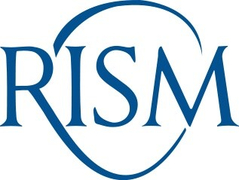RISM and Digital Musicology: Utrecht 2019
Thursday, August 22, 2019

To accompany this past July’s Digital Humanities conference in Utrecht, musicologists and computer scientists gathered for a meeting in which numerous short presentations were given. Digital musicology was the theme of the study group, which comprised around 50 people and met at Utrecht University, and the event was primarily organized by Frans Wiering. The international group of participants presented current initiatives in the field of music research, projects that can be placed at the intersection between research and information technology.
Important developments include evaluating and improving data produced through optical music recognition (OMR) with the help of neural networks and connecting such data to the semantic web.
For example, Manuel Burghardt from the University of Leipzig talked about the Allegro project, in which users worldwide can edit OMR data from around 140,000 folk songs from the Regensburger Volksmusikportal (RVP) and directly contribute to indexing the songs themselves. Similarly, the project CRIM (Citations: The Renaissance Imitation Mass Project) by Richard Freedman (Haverford College) allows results of musicological analysis to be shared through linked data-based interfaces and an appropriate ontology.
Stephan Hirsch from the RISM Central Office gave a report on the conference RISM held this past May in Mainz called “Works, Work Titles, Work Authorities: Perspectives on Introducing a Work Level in RISM” and described the current status of implementing the work level in Muscat, RISM’s internal cataloging program. To allow for source information about musical works to be adopted and usable, interoperability is of central importance.
Linking work information to an ontology that is standardized as much as possible and recognized by the field provides a framework in which information can be cross-linked as linked data between data providers. Currently, the RISM Central Office is evaluating various ontologies that are in widespread use, including BIBFRAME 2.0 and Schema.org, and analyzing them from the perspective of how they can be featured, such as linking within Wikidata.
The meeting offered a very successful framework for discussing current trends and allowing musicologists and developers the opportunity to talk about their current projects. Participants established a mailing list, ensuring that the dialogue will continue.
Stephan Hirsch, RISM IT manager
Share Tweet EmailCatégorie: Evénements

